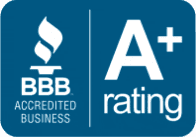Have you been ARRESTED or contacted by the Police, a Detective, FBI, or CPS?
Los Angeles Criminal Defense Lawyer for Pre-Filing Dismissals and Expungements
Pre-Files (Early Dismissals), Probation Terminations & Expungents in Los Angeles
Criminal Defense Firm Serving Clients Throughout California
One of the more unusual services that Saffari Law Group offers to its eligible clients is something we call “Pre-Files”. These typically involve extraordinary efforts on our part to persuade the law enforcement official, officer, or agent investigating our client to not refer the matter to the District Attorney’s Office (for felonies) or City Attorney’s Office (for misdemeanors) for prosecution.
However, if the DA’s Office or CA’s Office has already received the file for review, then at that point we will do everything in our power to convince them not to actually file the criminal complaint (or, in certain cases, not to empanel a grand jury for possible indictment).
Finally, even if the case has been filed, and even when our client has already been arraigned, then we would make every possible effort to convince the prosecuting attorney to dismiss the case. This approach works particularly well in those instances where only property damage or missing funds are at issue, so long as our client is able and willing to make full restitution to the victim.
To find out if your case may be eligible for a pre-file in Los Angeles, call Saffari Law Group at 213-460-4922 today.
Proudly Offering Intensive Services You Won’t Find Elsewhere
Many, if not most, criminal defense attorneys and firms do not offer this service for two simple reasons. First, Pre-Files often require a major investment of our time and resources – for example, we often work with one of our highly skilled private investigators to uncover every available piece of evidence that, at best, proves that our client is innocent of the suspected crime(s) or, at worst, will show the DA or CA that the potential case against our client is weak and, therefore, undeserving of their time, attention, and resources.
The second reason our competitors don’t offer Pre-Files is because Pre-Files don’t usually require a large retainer from the client, which means less money for the firm in the end. Along that same line, the firm will make more money after you’re arrested, arraigned, and prosecuted as opposed to having your case dismissed at the outset.
Similarly, deputy public defenders never spend time on Pre-Files for the simple fact that they only handle cases after the client is arrested and prosecuted.
Furthermore, it is against our firm’s policy to accept Pre-Files unless we sincerely believe we can make a real difference in your case. And if our efforts to get your case dismissed or mitigated at this preliminary stage are unsuccessful and you are later prosecuted, then in most circumstances, we will provide a partial credit from the Pre-File retainer against whatever we will charge you for the prosecution phase of your defense.
And even if our Pre-File appeal is initially rejected, seeds of doubt will be planted in the prosecutor’s mind – seeds which will bear fruit in the long run after the prosecutor’s resolve is inevitably weakened after many months of our hard-fought defense. Again, we would only accept a Pre-File case if the evidence actually merits this effort.
Please keep in mind that if you hire us for a Pre-File, there will never be a cap or limit to how much time we invest in trying to get your case dismissed. Our efforts will continue until our appeal is accepted or rejected, or until you are arrested and charged. To that end, we will meet as many times as necessary with the detective or prosecutor until we receive a definite answer to our proposal.
Criminal Defense
Menu










Time Is of the Essence When It Comes to Pre-Files
Without question, the most important thing for you to keep in mind if you want any chance of obtaining a Pre-File dismissal is that time is of the essence. The longer you wait, the greater chance that you will be arrested, charged, and prosecuted. This is especially true when the detective or deputy DA/deputy CA has already invested substantial time and energy into the case. On more than one occasion, we’ve encouraged the prospective new client who had just learned that he was under investigation to proceed on a Pre-File basis. Instead, he decided to take his chances with the DA, who arrested and charged him several weeks later on a case that could have easily been dealt with early on. He then hired us to defend him for a much higher fee, and it took us many months of costly and time-consuming litigation before we were able to do what we could have done for him at the Pre-File stage. We have seen firsthand the catastrophic results of potential new clients who should have hired us (or another competent attorney) to do a Pre-File but chose otherwise, or who otherwise waited too long to obtain a Pre-File dismissal or favorable disposition. For example, a foreign tourist here on vacation consulted with us about a potential rape charge he was facing. Several nights earlier, he had met a woman in the bar of the famous Sunset Strip hotel where he was staying. One thing led to another so when the bar closed, they went upstairs to his room. There, they had sexual intercourse, but afterward, she demanded he pay her $600, explaining that he must have known she was a sex worker and, therefore, would require payment afterward. When he refused to pay her, she told him she was going to call the police and falsely claim that he had raped her, then she left. The next day, he was contacted by an LAPD detective, which is when he came to us. We strongly urged that he immediately hire us to submit a Pre-File package so that we could put the client’s version of events to the police. The goal, of course, was to have the LAPD detective consent not to forward the case to the DA’s Office for prosecution or, if he or she had already done so, then we hoped to convince the prosecutor to not file charges. Unfortunately, the prospective client took his chances with the law, waited to do anything proactive, and ended up getting arrested and charged with rape.Mitigation/Pre-File Packages
Pre-Files largely come down to one or more meetings with the investigating detective or prosecuting attorney where we present him or her with what we call a “mitigation package”. This is the compilation of all the exculpatory or mitigating evidence that we have painstakingly compiled (again, usually with the help of our PI). In addition to evidence, this documentation includes other paperwork that supports our contention that our client deserves a second chance, such as proof of employment, enrollment in school, counseling, twelve-step programs, or other alcohol or substance-abuse rehabilitation, letters from community leaders attesting to the client’s good character, and so forth. We may even include witness affidavits, when appropriate. Or we might include a report from an expert witness, such as an accident reconstruction report. Sometimes these packages will even include favorable results from a polygraph (lie detector) test, administered by a highly reputable examiner who works closely with law enforcement agencies, and whose honesty and competence are unimpeachable. Although polygraph results are inadmissible as evidence in court, they can often convince the prosecutor to work with us to informally resolve the case. In our experience, investigators and prosecutors will almost always listen to reason and take seriously irrefutable paperwork evidencing our client’s innocence or lack of culpability. For them, time is short and resources are limited so they will always prefer to spend time on more worthwhile cases.Some of Our Past Pre-Files Involving Felonies
Out-of-state tourist facing possible sexual battery charge – result: DA declined to pursue case
People v. JK: An out-of-state client hired us to do a Pre-File on a sexual battery investigation being conducted by detectives from the LA County Sheriff’s Department. The investigators believed he had sexually assaulted a cleaning employee at a famous West Hollywood hotel. We met in person with the lead prosecutor and provided him with substantial exculpatory evidence, as well as the results from a lie-detector test administered by a highly reputable polygrapher – the results clearly indicated that he was telling the truth. The end result: the DA’s Office decided not to arrest and charge our client.Client facing possible sexual battery charge – result: DA declined to proceed with prosecution
People v. D.R.: LAPD was investigating our client for a sexual battery charge but, fortunately, we came on board early and immediately set about with our private investigator to gather evidence that proved his innocence. We reached out to the lead detective and convinced her and her partner to meet with us in person, which we did shortly thereafter. During the meeting, we presented all of this evidence, as well as our client’s version of events. End result: both detectives agreed that our client should never have been charged, and the DA’s Office decided not to proceed with prosecution.Client facing felony domestic violence charges – result: DA declined to prosecute
People v. A.S.: Our client was facing felony domestic battery charges. He hired us on a Pre-File basis after he was arrested. His former romantic partner (female) alleged that our client had physically assaulted and wounded her. We reached out to the lead LAPD detective on the case and provided him a mitigation package with evidence proving that our client had only been acting in self-defense against the complainant, and that the purported victim’s wounds were entirely self-inflicted. Thanks to our efforts, the DA’s Office declined to prosecute. So, too, did the City Attorney’s Office after they received the case from the DA’s Office for possible prosecution as misdemeanors. Less than ninety days later, the ex-girlfriend once again falsely claimed to police that he had attacked and injured her. Once again, he hired us on a Pre-File basis so we again met with the lead detective and provided our updated exculpatory evidence (including photographs that proved she had hurt herself). Fortunately, once again, the DA and CA’s Offices both refused to prosecute.Client charged with felony grand theft after confessing – result: declined by DA’s Office
People v. R.P.: Our client was arrested and charged with felony grand theft after confessing to the alleged crime. He then changed his mind and hired us to do a Pre-File case. Despite the full confession, we were able to make the accuser financially whole, after which the DA’s Office declined to prosecute.Early Probation Termination, Probation Violations (California Penal Code section 1203.3 P.C.)
Probation Explained
In Los Angeles County, superior court judges usually impose probation – for three or five years – so long as you served time, if any, in the county lock-up as opposed to a state prison. Typically, if you were convicted of a felony, you would receive five years’ formal probation. For a misdemeanor, it’s typically three years of informal probation (also called summary probation). Formal probation requires you to periodically meet in person with your probation officer, at which time you will usually have to provide a urine sample for drug testing. Conversely, if you are required to drug test, you will have to call a certain phone number each day, and if you are randomly selected, you will be notified by the outgoing voicemail message that it’s your turn to come in and provide the sample. Informal/summary probation simply requires you to mail in a form each month to your probation officer that confirms you’ve been staying out of trouble and otherwise complying with all the terms of your probation. Random testing is typically not a requirement of informal probation. However, you will have periodic status hearings – sometimes only on an annual basis — so you can report your progress to the judge in person (or through your attorney). Also, whether you’re on formal or informal probation, you may be required to attend some type of counseling, including for alcohol or drug treatment. This may involve inpatient or outpatient drug treatment at a facility recognized by the probation department, with regular written updates to be provided by your counselors. Or you might only need to attend a certain number of AA meetings and/or anger management sessions. You will also be required to pay a certain amount of court costs and fines, and possibly restitution to whomever you harmed. Additionally, you will be ordered to avoid getting re-arrested for any crime whatsoever and to stay away from other individuals with criminal records (namely, convicted felons). Sometimes those people will be any other felon (if you are now one), and/or specific individuals (such as your ex-wife following a domestic violence conviction, or your own child in a child abuse case). Indeed, it is the potential violation of your probation, whether it be formal or otherwise, that should give you the most concern. For example, we once worked out a very complicated plea agreement for one of our clients who had been arrested with several ounces of cocaine, but whose extenuating circumstances made this a highly unusual case. In any event, we worked out a plea with the Deputy DA for a deferred entry of judgment (DEJ) where our client would have a wobbler felony hanging over his head. This would mean that if he successfully completed his probation and complied with all of the terms, at the end of the thirty-six months, the felony would be reduced to a misdemeanor, which could then be expunged from his record. Thus, he could thereafter sign under penalty of perjury an employment or licensing application that he had never been convicted of a felony. But if he was found to have violated his probation by getting arrested again (and not necessarily convicted) for any crime, or if he tested positive for an illegal drug, then he would have to serve four years in a state prison. This brings to mind the very low threshold that is required for you to be violated. You do not have to actually be convicted of a new crime, only arrested for it based on probable cause that you did, in fact, commit the alleged offense. This is essentially a preponderance-of- evidence standard, meaning that if the defendant challenged the alleged violation in a hearing before the court, the DA’s Office would only need to show that you probably did the crime, as opposed to proving you did so beyond a reasonable doubt in front of a jury.Early Termination of Probation
Pursuant to Pen. Code section 1203.3, and pursuant to a motion to be heard by the sentencing superior-court judge, it is possible to have your probation prematurely but successfully ended. The requirements are straightforward: you have to have completed at least half of the probationary term, paid all court-ordered fines and costs, paid any restitution, and have stayed out of trouble during that time.Examples of Probationary Terms (Misdemeanors)
– In 1996, actor Robert Downey Jr. was pulled over for speeding and suspicion of driving while inebriated, and was allegedly found to have a small amount of heroin, as well as an unloaded .357 Magnum revolver on his person. Because he ultimately pled out to several misdemeanors for these offenses, he was given three years of probation. However, because of his past legal issues involving substance abuse, he was given formal probation with mandatory testing. – In late January 1991, then-N.W.A. gangsta-rap group member Dr. Dre (a.k.a. Andre Young) allegedly assaulted Denise “Dee” Barnes, the female host of the Fox TV network’s Pump It Up! show, at a Hollywood nightclub awards party. Exactly eight months later, Young was sentenced for misdemeanor battery and given twenty-four months’ formal probation. He also made a substantial monetary payment (reportedly close to $1 million) to settle her civil claims against him. – In late July 2006, actor Mel Gibson (Braveheart) was infamously pulled over for speeding on Pacific Coast Highway in Malibu by several LA County Sheriff’s deputies after leaving a local restaurant. Since this was his first DUI, in mid-August 2006, he was able to enter a no-contest misdemeanor plea and received only three years of formal probation. This included completing ninety days of first-time-DUI-offender counseling, regularly attending twelve-step meetings, coming in person to meet with his probation officer, paying a relatively small fine, and otherwise staying sober and out of trouble. Six months later, the sentencing judge changed Gibson’s status to an informal probationer, which meant he no longer had to report in-person or even attend any more meetings. Thus, Gibson ultimately completed a year-and-a-half of formal probation, and a year-and-a-half of informal. (Gibson wisely continued attending AA meetings even after he was no longer required.)Examples of Probationary Terms (Felonies)
– In early December 1984, Mötley Crüe’s lead singer Vince Neil crashed his Corvette on his way to buy more booze from a Redondo Beach store. He killed his front-seat passenger, Nicholas Dingley, a drummer for the Finnish band Hanoi Rocks who had arrived in America for the first time only the day before. Neil also caused major brain damage to the two people in the oncoming vehicle with whom he collided head-on. After Neil’s blood was drawn, it was determined that his blood alcohol content was twice the legal limit. In addition to other penalties, as part of his vehicular manslaughter sentence, he was given five years’ formal probation. He also had to pay millions to the victims’ families. – In late October 2006, rapper and actor Snoop Dogg (a.k.a. Calvin Broadus Jr.) was arrested at the Burbank airport for allegedly transporting a large quantity of marijuana. Based on that arrest, LAPD was able to obtain a search warrant for his home, where they allegedly found a firearm. In mid-April 2007, he pled no contest to a felony charge of being a felon in possession of a firearm, as well as a felony possession with intent to distribute marijuana. He was therefore able to avoid a potential five-year prison sentence and, instead, only received sixty months’ formal probation and was ordered to perform almost a thousand hours of volunteer work – however, four hundred of those hours could be performed through Broadus’ own adolescent football organization. He was also ordered to stay away from anyone with gang ties; to obtain permission from his PO anytime he wanted to leave California; and to allow police to take a DNA sample from him for use as evidence in possible future crimes. The judge warned him that if he violated any of these probation terms, he would immediately sentence Broadus to thirty-six months in state prison. – At the beginning of October 2003, grunge-rock singer Courtney Love (from the band Hole) was arrested for misdemeanor disorderly conduct, two counts of felony narcotics possession (for opioids), and a misdemeanor charge for being under the influence of drugs after she allegedly shattered the windows of a Beverly Hills residence late at night. Later that night, Love reportedly suffered a drug overdose that required an ambulance ride to Cedars-Sinai emergency room, where she almost died. Her daughter (age 11) with the late Nirvana front man Kurt Cobain was temporarily taken from her and placed in the home of his mother. A family court judge eventually ordered Love to move out of her own Beverly Hills home so that the daughter, a nanny, and several relatives could move in. Love, meanwhile, would have limited visitation rights. She eventually pled guilty to a single felony for possessing drugs and a single misdemeanor for possessing a forged prescription. As part of her formal probation, was required to enter rehab for a year-and-a-half, including twelve months as an in-patient, attend NA three times a week, do a hundred hours of volunteer work, and pay a small fine. This was a DEJ case (deferred entry of judgment, which is typically reserved for first-time drug offenders) so, assuming she satisfied all her probationary terms, her felony would be dismissed.Examples of Probation Violations
– In November 1996, actor Robert Downey Jr. (The Avengers) was sentenced to three years’ formal probation with periodic U.A.’s (urine analysis) after he pled no contest the month before to felony possession of cocaine, crack, and heroin, as well as to a misdemeanor DUI stemming from a June 1996 arrest. In mid-December 1997, the judge found that by skipping at least one of his U.A.’s, he violated his probation. The judge then sentenced him to 180 days in jail and warned him that if he violated one more time, he would sentence the movie star to state prison. He ultimately served 113 days instead of the full six months because of good behavior and jail overcrowding. Sure enough, in early August 1999, the same judge found that he had violated his probation a second time by yet again missing another drug test. True to his word, the judge sentenced Downey to serve three years in Corcoran state prison’s rehabilitation facility (not the maximum-security facility next door). He was released early for exemplary behavior and successfully completing in-custody rehab. – In November 2000, Downey again found himself in legal trouble after he was arrested in Palm Springs for possession of cocaine and Valium. As a result, he was sentenced on a misdemeanor possession charge with twelve months’ outpatient drug counseling and three years’ formal probation. Unfortunately, he violated his probation only six months later with his arrest in a Los Angeles alley for being under influence of a controlled substance. But he lucked out when the judge took pity on him and extended his outpatient treatments to three years total. A less forgiving judge could have immediately remanded him into custody to serve up to twelve months in the county facility.Defending an Alleged Probation Violation
Probation violations cannot be defended in a vacuum, meaning that you will also need to defend yourself against whatever new charge you were arrested for. Because the threshold for violating is so low (again, probable cause), you will have to do everything in your power to prove to the court that you were actually innocent of the new crime and, therefore, probation should be immediately reinstated with no violation on your record. Again, it is important to keep in mind that the judge only needs to find that you likely violated your probation – in other words, that it was at least 51% probable that you did so. This is obviously a far lower legal threshold than proof beyond a reasonable doubt. Therefore, it is critical that you have experienced, competent legal counsel defending you at these hearings.Our Approach to Early Probation Terminations
So long as our clients have complied with all their probationary terms, we will usually advocate for moving the court for early termination. Aside from the major inconvenience and time demands that (formal) probation places on your life, more concerning is the possibility of what happens if you are violated. As discussed above, violating could result in harsh penalties, including serious jail or even prison time. So it makes no sense to not take advantage of this opportunity – assuming, of course, that you would be eligible for early term. We would also advocate on your behalf – both within the motion itself and at the hearing on the motion – all the compelling reasons that you require early termination, such as a new job or career, custody and/or visitation issues, travel requirements for work, plans to pursue a professional license, military service, and so forth. Or maybe immigration issues are involved. In our experience, most LA County criminal court judges will help those probationers who help themselves by reviewing our motion and early-termination package with an open mind so long as the defendant has acted in an exemplary manner thus far in his or her probation. If at all possible, we will also make every reasonable effort, to the best of our abilities, to secure the support of both the probation officer and the prosecuting attorney. If we can prove to them that you have done everything in your power (ideally) to turn your life around and take responsibility for your actions, then they may be amenable to the court granting the motion or, at minimum, will not file an opposition to the motion. More specifically, we’d like to show these individuals and, of course, the sentencing judge that you have been either working or going to school full-time, consistently, going to one or more weekly twelve-step meetings or counseling sessions (if applicable), and perhaps even going beyond the court-ordered requirements to prove your commitment to living a productive, law abiding life (such as putting in significantly more community service hours than required). This early termination would also hopefully include numerous letters attesting to your character and rehabilitation by your family members, friends, and third parties (such as religious or community leaders), as well as perhaps your own letter to the judge. So long as the information is genuine and well-documented, the judge will carefully and fairly consider our motion. If we are successful in convincing the judge to grant our early termination motion, then we will often file a second motion to reduce the felony (if applicable) to a misdemeanor, and then a third motion to get the misdemeanor entirely expunged from your criminal record.Felony & Misdemeanor Expungements (California Penal Code 1203.4 P.C.)
Having a felony on your record will virtually always negatively impact almost every facet of your life, and can wreak havoc on your professional career aspirations, your custody case, or immigration status, if applicable. You can no longer vote or own firearms, and are prohibited from socializing with other felons. You will be denied for bank financing, as well as all student loan applications, and even financial aid. You may also occasionally get hassled by US Customs officials when you’re returning to LAX from an overseas trip or, even be denied entry to other countries. For example, Canada typically refuses to allow convicted felons – even from the United States – to enter any of its territories. How amazing would it feel to be able check the “no” box on a (private) job application that asks if you’ve ever been convicted of a felony? (Government jobs require you to explain that the case was dismissed.) Or to finally obtain that professional license you spent years working towards until you ended up in your current predicament? Even a misdemeanor on your record can cause you to lose numerous career, educational, military, and/or immigration opportunities, particularly if it considered to be a crime of moral turpitude. This is defined as a crime that involves violence, sex, fraud, theft, or that is so reprehensible as to shock the average person. An expungement typically involves the judge agreeing to reduce your felony conviction to a misdemeanor, or a misdemeanor reduced to an infraction, and with the reduced charge getting dismissed (either immediately following the reduction or shortly afterwards). Most expungements are fairly straightforward but the proper procedures need to be carefully adhered to or you risk losing this opportunity – it’s very difficult to succeed on additional expungement attempts once you’ve been initially refused by the sentencing judge on your case. In any event, your lawyer must first file a motion and attend a hearing to reduce the charge to a misdemeanor, followed by a second motion (and possibly a second hearing) to then have that misdemeanor dismissed from your permanent record. The judge will retract your guilty or no-contest plea or conviction, enter a not guilty plea, then dismiss the entire case. An important note: the record of your arrest will still remain. However, unless you are applying for a federal professional license (and in some cases, state licenses) in the securities or commodities industries, you will rarely have to divulge the fact of your felony arrest. Otherwise, no convictions will appear on your record. Unless your felony (or misdemeanor) falls into one of the following categories, and assuming you satisfy a specific set of requirements, you should be able to permanently expunge your criminal record:- Disobeying a lawfully-issued order by a police officer (Veh. Code section 2800 V.C.) or fireman (2801 V.C.), including regarding you driving an unsafe vehicle (2803 V.C.);
- Statutory rape (misdemeanor or felony); specifically, as an adult at least age twenty-one, you were convicted of having sexual intercourse with someone under sixteen (Pen. Code section 261.5(d) P.C.);
- Sodomy with a minor at least fourteen years old by force or threat (286( c ) P.C.);
- Lewd or lascivious acts on a child under age fourteen (288 P.C.);
- Recurring sexual abuse of a minor under fourteen years of age by an adult who lives in the same residence or who has access to the child (288.5 P.C.);
- Sexual penetration with a child under fourteen by a person who is at least a decade older (289(j) P.C.).
- Whether the felony you pled guilty or no contest to, or was convicted of at trial, was a wobbler – this typically means you are not a violent offender nor one who served any length of a state prison sentence;
- You completed to the court’s satisfaction each and every one of your terms of probation (typically formal as opposed to informal), including payment of all fines, costs, and restitution to any victim(s);
How We Go About Expunging Felonies
Several motions must be filed with the court – typically with the sentencing judge, assuming he or she is still on the bench. As exhibits we attach documentation that proves our client has been a law-abiding, productive member of society who now has a compelling reason (ideally) to have his or her record expunged. Many of our expungement clients are also seeking to either acquire or salvage a professional license. Therefore, we will work closely with one of the licensing attorneys in our network to ensure we work in tandem for the duration of the expungement and licensing process. At Saffari Law Group, we take great pride in the lengths we are willing to go to for our clients. To learn more about your options regarding clearing your records, call us at 213-460-4922 or fill out our online contact form today.
"Ninaz is highly professional, organized, and talented."
RobertClient
"I always refer to Ninaz Saffari as a fighter in the courtroom. I walked out of court a free-man due to this attorney's hard work and know-how."
Kevin F.Client
"She not only makes you feel comfortable but she is very competent and experienced in pretty much any kind of situation and scenario. I feel very lucky to know her."
AddyClient